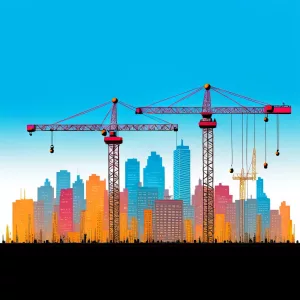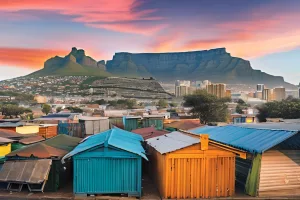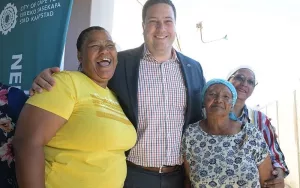Cape Town’s Vision 2050 paints a bright future where the city grows strong, fair, and ready for change. The plan focuses on building more homes, improving public transport, and keeping people safe with smart technology. It also aims to protect nature by using clean energy and saving water, while making sure everyone can join in decisions about the city’s future. Together, Cape Town’s people will create a lively, caring city where opportunity and hope bloom for all.
Legal Aid South Africa is making a big change to help more people get legal support. Starting April 1, 2025, they will raise the income limits for legal aid, allowing more families to qualify. For example, the limit for criminal cases will go up from R8,700 to R9,100, and the cap for household assets will increase to R787,600. This means that people who are struggling financially, like single parents, can get the help they need to fight for their rights. Overall, these changes aim to make justice fairer and more accessible for everyone in South Africa.
South Africa’s recent VAT increase by 1% is stirring up strong feelings across the country. Critics say this tax hike will hit lowincome families and the middle class the hardest, making life even tougher for those already struggling. While the government argues that the extra money will help pay for important services like health and education, many believe there are better ways to support people without adding to their financial burdens. Amidst this tough news, there is a bright spot: increased funding for early childhood education, which could help lift many families out of poverty and build a better future.
The Tafelberg Conundrum is a long and intense legal battle in Cape Town over land meant for social housing. For ten years, activists have fought against a government plan to sell this land to a private school, arguing it should be used to create affordable homes instead. This conflict highlights the struggle between making money and providing for people in need, especially after the injustices of apartheid. As the Constitutional Court prepares to make a decision, the outcome could change how the government approaches housing for everyone, aiming for a fairer city where all can thrive.
Infrastructure is crucial for South Africa’s growth and change, acting like the backbone of the country. It helps create jobs, connect communities, and ensure everyone has access to resources. With big plans like the Economic Reconstruction and Recovery Plan, the government aims to boost energy, transport, and digital services, moving towards a brighter, fairer future. Projects like building bridges in rural areas show a commitment to uniting people and healing past injustices. Overall, infrastructure development is about building not just roads and bridges, but a better life for all South Africans.
Navigating Cape Town’s Housing Challenges: A Closer Look at the Backyarder Programme
The Backyarder Programme in Cape Town is a bright effort to help people living in tough conditions in the city’s backyards. It provides basic needs like water, electricity, and sanitation for those who often get overlooked. While Cape Town shines with beauty and culture, many residents face real struggles in informal settlements. The program aims to lift their living standards, but it also highlights the challenges of helping those on private land. With strong community voices pushing for change, Cape Town dreams of a fairer future where everyone can access the services they deserve.
Cape Town has launched a revolutionary ‘Zero Expense Transfer’ program to help tenants become property owners without any financial burden. The initiative aims to promote inclusivity within communities through property ownership and has been earmarked for an estimated R40 million over a threeyear period. The initiative also covers attorney transfer fees and insurance costs for rental units, making the journey to homeownership easier for beneficiaries.







